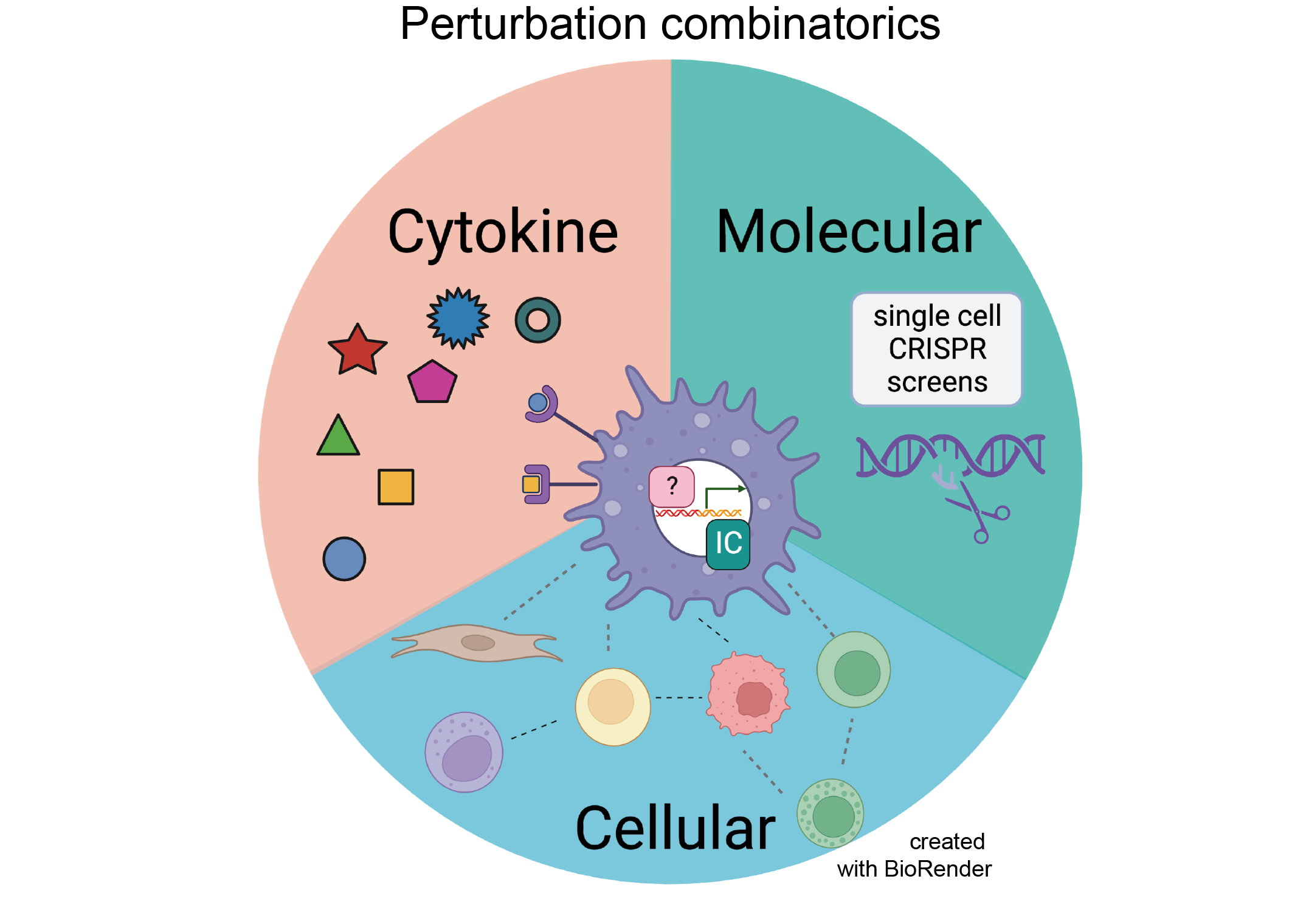The INIMAC laboratory focuses on the processes leading to the activation of innate immune cells, in particular macrophages and natural killer (NK) cells. Innate immune cells are critical initiators and contributors to a wide spectrum of diseases. Innate immune activation relies on indirect or direct cell contact, involving interferons and cytokines or receptor-ligand interactions, respectively. In the lab we strive to understand the complex interplay of molecules and cells on the activation of macrophages and NK cells in response to infections as well as in granulomatous diseases and histiocytoses. Another line of research is aimed at dissecting the role and contribution of macrophages and NK cells to the tumor microenvironment and tumor progression.
We are studying innate immune cells both on a functional systems biology and functional cellular level. We aim at reprogramming their epigenomic potential to elicit improved responses towards pathogens and cancer. In collaboration with clinicians and molecular biologists at the MUW, we have established and developed workflows to integrate cutting-edge pre-clinical in vitromodels including co-culture models using complexed organoids and tissue slice cultures. We build on a lineup of recently in house developed and established next generation sequencing (NGS) technologies, which can serve through systems level multi-omics integration to identify critical players at the molecular and cellular level. This requires a tight integration of wet-lab and computational scientists to apply the right strategies to the right kind of biological problem and question.
Matthias Farlik
Principal InvestigatorMatthias Farlik, PhD
Medical University of Vienna
Department of Dermatology
Laboratory: 7H.02.08
Waehringer Guertel 18-20
1090 Vienna (Austria)
Phone: +43 (0)1 40400-77060
Fax: +43 (0)1 40160-76990
Email: matthias.farlik@meduniwien.ac.at
Send an e-mail to matthias.farlik@meduniwien.ac.at with a cover letter and CV and we will be happy to discuss opportunities.
- 2023 – Ania Kusienicka awarded the APART-MINT postdoctoral fellowship of the Austrian Academy of Sciences (ÖAW)
- 2022 – Djurdja Pasajlic awarded the Doctoral Fellowship (DOC) of the Austrian Academy of Sciences (ÖAW)
- 2019 MEDA – Award for Matthias Farlik: The “non-melanoma skin cancer prize 2019” was awarded to Matthias Farlik by the Austrian society for dermatology and venerology.


